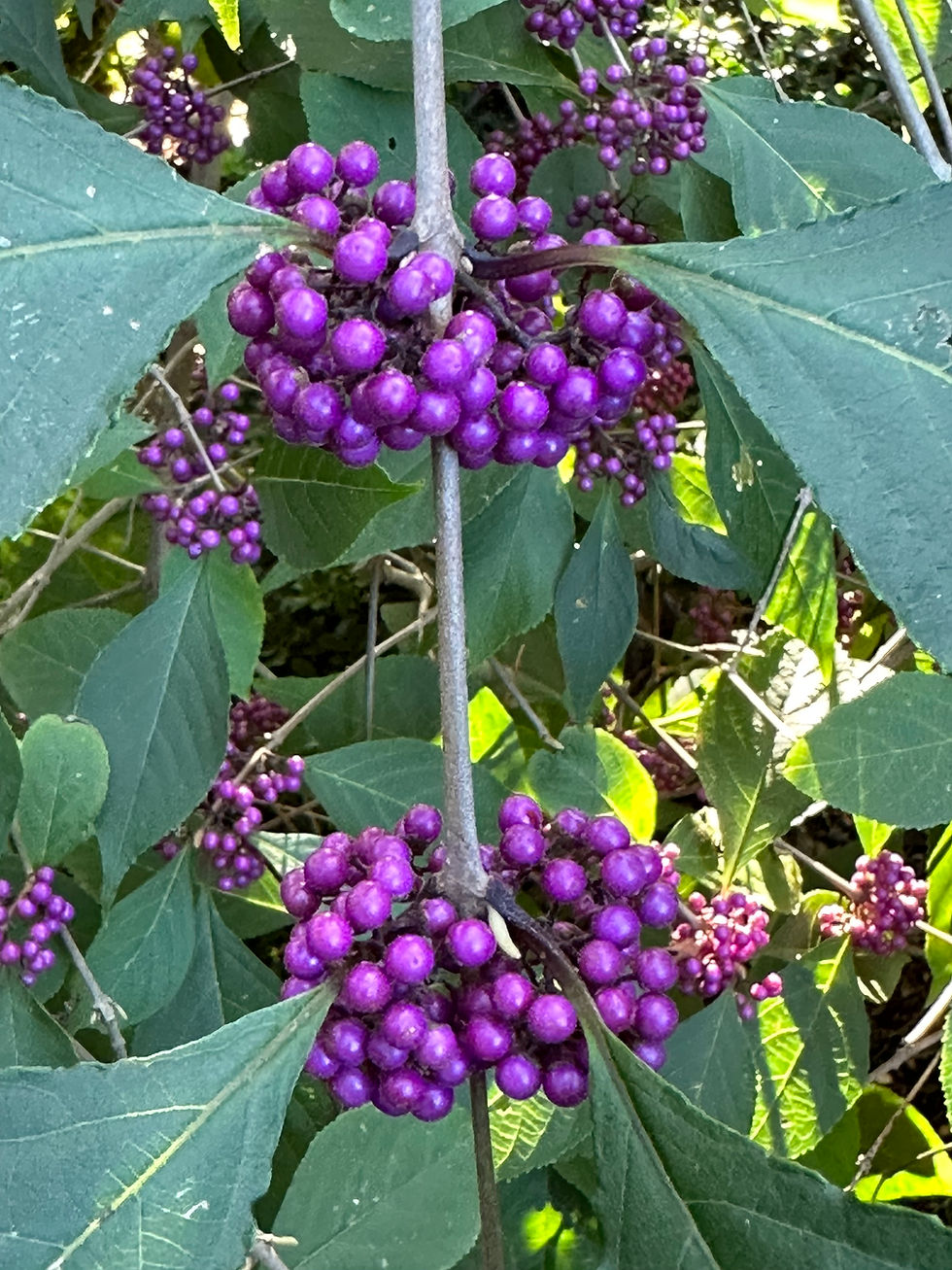Native Plant of the Week: Coral Honeysuckle
- Kimberly Simmen
- May 16, 2022
- 2 min read
Family: Caprifoliaceae
Name: Lonicera sempervirens
Bloom Time: May - June
Flower: Coral Red
Soil Condition: Average, Moist, Rich, Well Drained
Light: Sun to Partial Sun
Height: 15-25' tall by 3-6' wide
Native Range: Southeastern United States
Zone: 4 to 9
Lonicera sempervirens is a great vine for climbing an arbor, chain link fence or allowed to ramble as a ground cover or cascading over a wall. The showy tubular flowers are a showstopper when in bloom and a hummingbird favorite. Prime bloom time is in the spring but it may also give you a few blooms in the fall. The leaves are greenish gray and remain attractive throughout the growing season. Inedible red berries form late summer to fall and are a magnet for songbirds. Tolerates shady spots but will not flower as well as it does in full sun. If you don't have the room in your garden, it's also fantastic in a planter with a trellis on a patio.
Maintenance: Needs a little help getting started to climb as it lacks tendrils and aerial roots. Prune as needed immediately after flowering as it blooms on new and old wood. Susceptible to aphids, but these are usually just a cosmetic nuisance.
Benefits: Host plant to Spring Azure butterfly and Snowberry Clearwing Moth, nectar source, pollinators especially bumble bees and hummingbirds, deer and rabbit resistant, juglone resistant (Black Walnut).
Companion Plants: Monarda didyma - Bee Balm, Aquilegia canadensis - Wild Columbine and Agastache foeniculum - Anise Hyssop
Cultivars:
Lonicera sempervirens 'John Clayton' is a yellow flowering variety with the same traits as the straight species and is also a host plant.
Lonicera sempervirens 'Major Wheeler' is the most prolific bloomer of the native Honeysuckles and is the same color as the straight species and is also a host plant.
pics: KMS Native Plants LLC (Snowberry Clearwing Moth Caterpillar)
=============================================================
References:










Comments